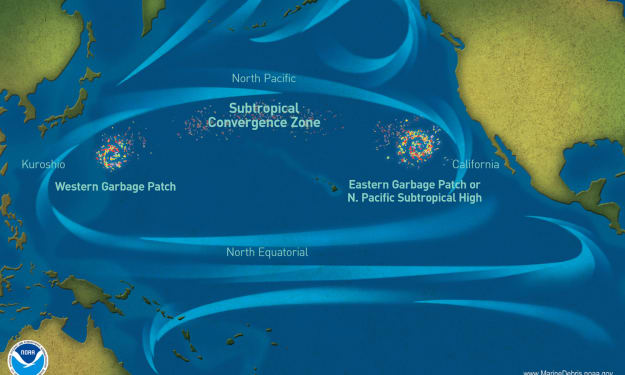The Global Challenge of Climate Change
A Transformative Crisis

Introduction
Climate change has emerged as one of the most pressing global challenges of our time, with far-reaching implications for the environment, economies, and human well-being. The impact of climate change is being felt across the world, irrespective of geographic location or socio-economic status. This article delves into the multifaceted dimensions of climate change, its effects on different regions, and the urgent need for collective action to mitigate and adapt to this global crisis.
The Widespread Effects of Climate Change
Rising Temperatures and Extreme Weather Events
The Earth's average temperature is steadily increasing due to the emission of greenhouse gases, primarily carbon dioxide from burning fossil fuels. This global warming trend has led to a surge in extreme weather events such as hurricanes, droughts, floods, and heatwaves. In regions like the Arctic, the impact is particularly pronounced, with rapidly melting ice caps and shrinking glaciers threatening ecosystems and contributing to rising sea levels.
Disrupted Ecosystems and Biodiversity Loss
Climate change disrupts ecosystems and poses a significant threat to biodiversity. Rising temperatures, altered precipitation patterns, and habitat degradation are causing shifts in species distribution and impacting delicate ecological balances. Coral reefs, for instance, are suffering from bleaching events due to increased water temperatures, jeopardizing marine biodiversity and coastal economies that rely on them.
Water Scarcity and Food Insecurity
Changing climate patterns are affecting water availability and agricultural productivity, leading to water scarcity and food insecurity in many regions. Droughts are becoming more frequent and severe, undermining crop yields and threatening livelihoods. The impact is particularly acute in developing countries with vulnerable agricultural systems and limited access to technological advancements.
Public Health Challenges
Climate change also poses significant risks to human health. Increased temperatures contribute to the spread of vector-borne diseases such as malaria and dengue fever. Extreme weather events and rising sea levels can trigger population displacement and exacerbate the risk of waterborne illnesses. Vulnerable communities, including the elderly and those with pre-existing health conditions, are disproportionately affected.
Regional Climate Change Impacts
Asia-Pacific
The Asia-Pacific region is highly vulnerable to climate change impacts. Coastal areas are at risk from rising sea levels, affecting densely populated cities and small island nations. The region is also prone to extreme weather events, leading to devastating floods and cyclones. Moreover, changing rainfall patterns impact water resources and agriculture, posing risks to food security.
Africa
Africa faces numerous climate-related challenges, including prolonged droughts, desertification, and land degradation. These factors undermine agricultural productivity and contribute to food insecurity. Additionally, the continent's wildlife and ecosystems suffer as habitats shrink and species face the risk of extinction. Climate change exacerbates existing socio-economic inequalities, affecting vulnerable populations the hardest.
Europe
Europe experiences a diverse range of climate change impacts. Heatwaves and wildfires have become more frequent and severe, causing environmental damage, economic losses, and health risks. Melting glaciers in the Alps pose threats to the region's freshwater supply, affecting agricultural production and hydroelectric power generation. Rising sea levels also threaten coastal areas and infrastructure.
Americas
The Americas face a range of climate change impacts. In North America, more frequent and intense hurricanes pose risks to coastal communities. Droughts in Central America and parts of the United States contribute to food insecurity and migration pressures. In South America, deforestation and changing rainfall patterns impact the Amazon rainforest, which plays a crucial role in global climate regulation.
The Urgency for Collective Action
Addressing climate change requires collective action at various levels, from individual choices to international cooperation. Here are key areas demanding attention:
Transitioning to Renewable Energy
Shifting away from fossil fuels towards renewable energy sources is crucial in mitigating climate change. Governments and industries must invest in clean energy technologies such as solar, wind, and hydroelectric power, while promoting energy efficiency measures to reduce greenhouse gas emissions.
Enhancing Climate Resilience and Adaptation
Building climate resilience is essential to cope with the changes already underway. This includes investing in infrastructure that can withstand extreme weather events, implementing sustainable land management practices, and integrating climate change considerations into urban planning and water resource management.
Promoting Sustainable Agriculture and Forestry
Adopting sustainable agricultural practices and reducing deforestation are vital for mitigating climate change. This involves implementing agroforestry systems, supporting smallholder farmers, and promoting sustainable land-use practices that preserve biodiversity and protect ecosystems.
International Cooperation and Policy Frameworks
Global cooperation is indispensable to tackle climate change effectively. International agreements like the Paris Agreement provide a framework for countries to collaborate in reducing emissions, supporting developing nations, and mobilizing financial resources for climate action. Strengthening and implementing these agreements is crucial for achieving a sustainable future.
Conclusion
Climate change is a global challenge that requires urgent action. The impacts of climate change are felt across the world, affecting ecosystems, human health, and socio-economic stability. By embracing renewable energy, enhancing climate resilience, adopting sustainable practices in agriculture and forestry, and fostering international cooperation, we can work towards mitigating the worst effects of climate change. It is only through collective efforts and a shared commitment to a sustainable future that we can confront this transformative crisis and safeguard the planet for future generations.
About the Creator
moonlight rsa
a young teenage boy who wishes to be one of the best writers one day
Enjoyed the story? Support the Creator.
Subscribe for free to receive all their stories in your feed. You could also pledge your support or give them a one-off tip, letting them know you appreciate their work.






Comments
There are no comments for this story
Be the first to respond and start the conversation.